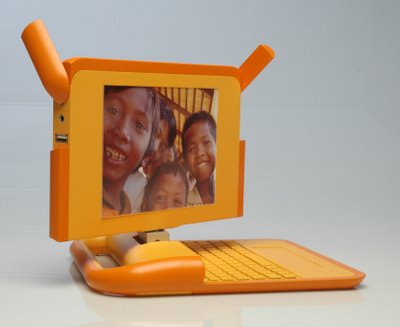
One belief behind many such projects is, that people are poor because they are uneducated; access to the internet would be educational, and therefore would help end poverty worldwide.
I would agree that the internet CAN be a great educational resource, and could HELP; however, like any resource, it can be used wisely, or squandered.
For instance, here in America, many people have internet access, including the "poor" among us. I don't doubt that some use the internet to educate themselves, to get better jobs, to and improve the quality of their lives. Yet I'm also certain that many more use it to read gossip, watch porn, hook up for sex, and otherwise use it as entertainment and distraction from more meaningful pursuits. Still others use it in malicious ways, like stalking and criminal activities.
The internet by itself does not educate people or lead to a guaranteed reduction of poverty. Trailer Trash can use it and still stay Trailer Trash, even in an advanced industrial nation like the USA, which has abundant educational opportunities.
Used with direction, purpose and guidence, the internet can undeniably be a valuable educational tool. But what about the unintended consequences of making it accessible worldwide?
In prior posts about the OLPC project and other similar programs, I've read that the parents of kids involved in these programs will sometimes come to the school with the kids, and ask their children to look things up for them on the internet.
In one video about the OLPC Project, a school in Cambodia gave laptops to kids, and even let the kids bring the machines home to use. These villagers had no electricity or running water in their homes, but they had a laptop computer! At night, it was often literally the brightest thing in the house. And if their home was within wireless range of the school, they had internet access, too. Access to streaming video, music, everything. (You can see on-line the story, a 13 minute CBS video about this)
Remember in the TV series "Star Trek", the crew had an imperative called the "Prime Directive", which forbid them from interfering with the natural development of other cultures? It also forbid them from giving advanced technologies to people who had not yet developed those same technologies. The logic behind that was, that if you gave advanced technology to people who had not yet developed the wisdom and comprehension to use it properly, the results could be disastrous... or at least, there could be unforeseen negative consequences.

So here you have these little Cambodian children, all excited about their computers. The first word they learn in English is "Google". They use all this kid-friendly software, they sing-along with the computer in English, etc. They and their families now have a portal to the rest of the technologically advanced world, via the world wide web. Is there something inherently wrong with this? No, not that we can see. It's just that their parents and grand parents and all who went before them did not have this. So in the long run, how is this going to affect and change their culture? What will the long term after effects be?
We don't really know, because nothing quite like the internet has happened before.
The internet is relatively new. Even in our own technologically advanced cultures, we are having kids being raised with the internet, which has never happened before. It's making changes that we are only beginning to see. And yet before we even fully appreciate what is happening to ourselves, we are extending it to others, to everyone.
I'm not saying I'm against it. I doubt that anyone could stop it even if they wanted to. I'm just asking, what might the unintended consequences be? And I'm asking that because, I doubt we are going to be prepared for them. Forewarned is forearmed.
In Part II of this post, I'll take a closer look at possible unintended consequences.
I'll end today's post with this simple example of the law of unintended consequences in motion:
No comments:
Post a Comment